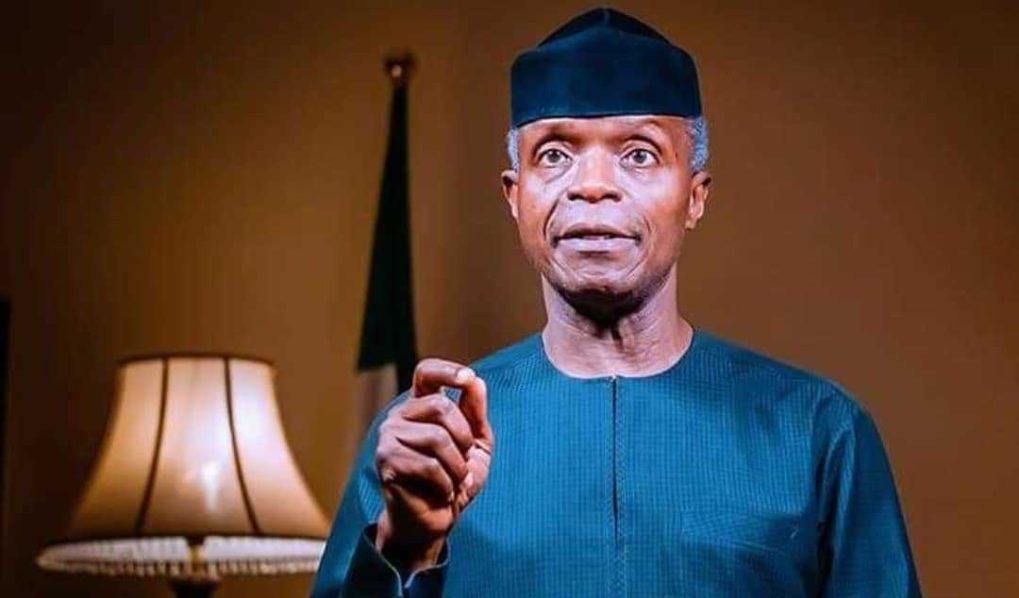
• Urges youths to engage in politics as protests alone won’t bring change
• S’African minister harps on digital access for marginalised communities
Former Vice President Yemi Osinbajo, yesterday, said political action is weakened in Africa because the people value individual success more than community success.
Osinbajo made the statement at the sixth yearly Technology, New Media, Citizens and Governance (#TNCG2024) Conference in Lagos, where he delivered a keynote address on ‘Technology as a Catalyst for Political Action in Africa’.
According to him, youths in developing countries must engage in active politics as political action for social change must go beyond protests. The ex-VP, who noted the common struggles of developing African countries such as economic deprivation, bad governance and weak institutions, argued that the challenges demand a shift from individualistic goals to collective efforts for societal transformation.
During his address, Osinbajo cautioned against the allure of protest movements that fail to produce measurable outcomes. He stated: “We do not have the luxury of political action for its own sake. In poor societies, every day of protest is vulnerable because millions of informal workers and traders sacrifice their daily earnings. Political action must lead somewhere; it must move a step closer to resolving the issues that cripple our societies.
“Political action must go beyond the euphoria of protests and lead to measurable results. Otherwise, it becomes counterproductive.” Noting the role of technology in fostering change, he said collaboration could amplify voices, mobilise movements and enhance transparency.
“One of the reasons we find it so difficult to work together to change our communities is because individual success, especially in the academic space, is overemphasised. Political action is weakened when people see individual success as more important than community or group success. Collaboration as a key in any type of technology, especially technology-enabled businesses or basic education, can be a game-changer. We can produce young men and women, who understand the power and exponential benefits of united action.
“Technology has revolutionised political action by amplifying voices, mobilising movements and fostering transparency. However, we know the potential risk of disinformation, and these potential risks must be addressed responsibly. Additionally, leveraging technology for developmental solutions in education, healthcare and governance can drive lasting progress.’’
I think that by using technology responsibly and innovatively, we can empower individuals, strengthen institutions and transform political action into a force for real development in Africa.”
South Africa’s Deputy Minister of Communications and Digital Transformation Technologies, Mondli Gungubele, also spoke at the event. During a panel session entitled ‘The Intersection of Technology, New Media and Political Action in Africa: Demand and Supply Perspectives’, Gungubele noted the transformative potential of digital access for marginalised communities.
Gungubele explained the sea of informal settlements (shacks) built by people who migrated from rural areas in search of better opportunities. He said they were people whose problems could have been solved with the use of technology.
“If you go to South Africa now, go to the urban centres, there are a lot of shacks housing people who migrated from rural areas. When you sit with them, you discover that more than seven per cent of their concerns could have been addressed where they are, had they been connected,” he said, warning that technology is a double-edged sword, driving positive change and exacerbating unrest.
The conference featured dynamic speakers and panellists from Nigeria, South Africa, Kenya, Egypt and more. Osinbajo added that he was able to carry out far-reaching reforms in the justice system after he was appointed Attorney-General of Lagos in 1999. He said before the Alliance for Democracy (AD) won the 1999 election in Lagos; he made little progress in his clamour for justice reforms as a university lecturer.






